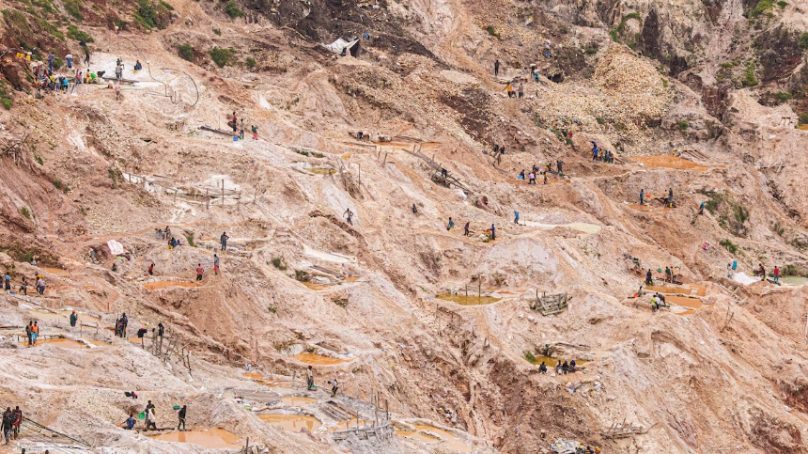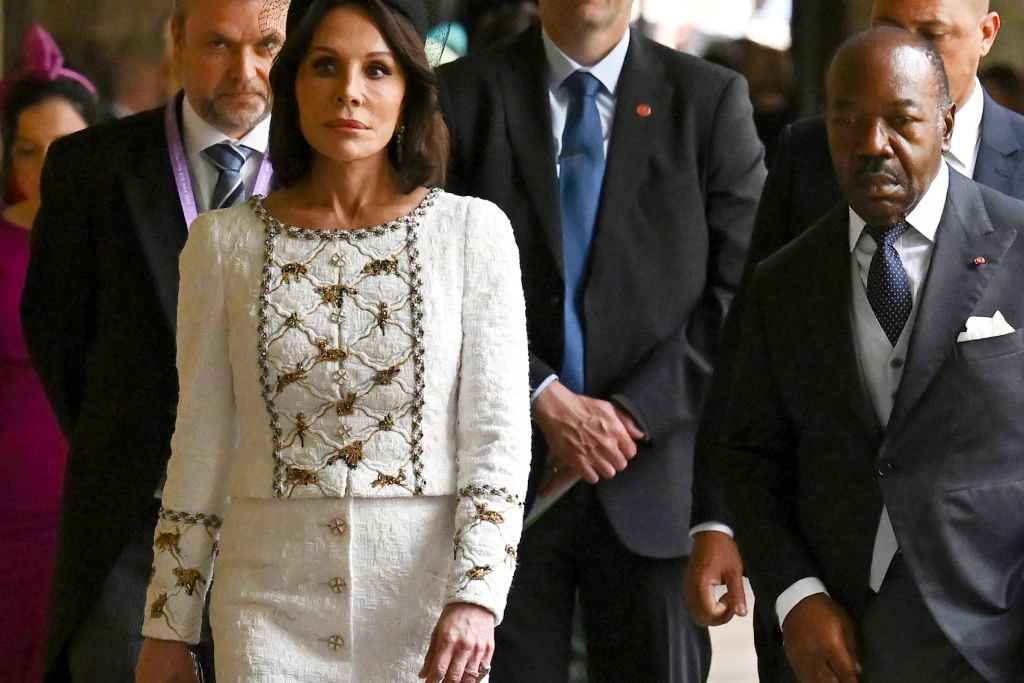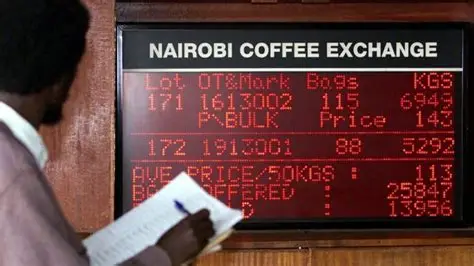
In the early months following M23’s takeover of Rubaya in April 2024, smugglers used motorcycles to sneak mineral ores into Rwanda via backroads to avoid scrutiny by Congolese forces remaining along the border, according to more than a dozen people familiar with the situation, including current and former smugglers, miners and local businessmen.
The journey could take an entire day, according to two ex-smugglers who transported coltan this way until last year. They said they loaded their bikes each trip with three 50-kilogramme bags and were paid about $34 for delivering it to coltan traders.
But alterations implemented by M23 have proven a game changer in terms of efficiency, nine of those people said. Motorcycles are no longer the primary means of transport and are used only to ferry the coltan from the mine to the town of Rubaya. From there, the ore is loaded into four-wheel drive SUVs, pickups and other vehicles capable of hauling anywhere from two tons to 20 tons each, according to the people and the July UN report.
The system is faster, too. Since M23 drove Congolese troops from Goma and took control of that border city, coltan trucks can now pass freely through it on paved roads into Rwanda, slashing transport times, the people said.
UN experts and human rights activists have long warned that profits from illegal mining are funding conflict. They say the trade has brought little wealth to local people and that child labour is common. Reuters witnessed at least a dozen children working at the Rubaya mine: Young boys entered the shafts to haul out ore and carry it to the basins where girls worked alongside adults washing and drying the coltan.
Gregory Mthembu-Salter, a former UN expert on Congo who now does consulting on conflict minerals, said broad efforts by the mining industry, UN agencies and non-government organisations that began around 2010 to clean up the region’s supply chain and prevent human rights abuses have largely failed.
“Here we are, 15 years later, (and) the same thing is happening,” said Mthembu-Salter, director of Phuzumoya Consulting.
Some US entrepreneurs have also set their sights on Rubaya’s coltan treasure as President Donald Trump seeks to broker a peace deal to end the conflict and promote development of the region’s mineral wealth. In Congo, those riches include huge reserves of cobalt, gold, copper, lithium and diamonds in addition to coltan. The country’s formal mining sector at present is dominated by Chinese companies.
Texas hedge fund manager Gentry Beach, who is chairman of investment firm America First Global and helped raise funds for Trump’s election campaign in 2016, was part of a consortium looking to negotiate rights to the Rubaya mine, according to a person with direct knowledge of the matter. The Financial Times earlier reported Gentry’s interest in Congo’s coltan.
The source told Reuters that Beach’s group had proposed to the Congolese government taking a majority stake in the mine, with Kinshasa retaining a 30 per cent interest.
Beach confirmed his interest in the project to Reuters but declined to provide additional details.
Some US lawmakers are pushing back. In an Aug. 8 letter to Trump and US Secretary of State Marco Rubio, more than 50 Democratic congress members criticised what they said was the administration’s lack of transparency in its negotiations with the DRC. They also raised concerns about a potential conflict of interest in a Trump ally angling for rights to develop the Rubaya mine.
White House Deputy Press Secretary Anna Kelly said in an August 5 emailed statement that the agreement between Congo and Rwanda arranged by Trump has the potential to lead to lasting peace and stability in the region. The president’s vision is a “win-win outcome where all parties benefit—economically and politically—through cooperation and shared prosperity,” the statement said. She did not respond to a follow-up query about the letter from congressional Democrats.
The US State Department did not comment. On August 1, the State Department said in a statement that it was committed to supporting efforts being made by Rwanda and Congo to advance security and economic cooperation. Heads of state would soon be invited to Washington for a summit, according to the statement, which did not elaborate.
The US-backed accord does not include M23. The rebel group is part of a separate, parallel mediation led by Qatar that seeks to end hostilities. The success of those talks in Doha is key to any lasting peace – and in making Rubaya safe for investment and development by Western mining interests.
Some diplomats and analysts are dubious about the prospects for a speedy resolution.
Congo and M23 rebels pledged in Doha to reach a peace deal by August 18. But progress has been jeopardised by the killing of at least 319 civilians in eastern Congo last month, according to the UN, which says the attacks were carried out by M23.
Reuters could not independently confirm those killings. M23 leader Bertrand Bisimwa told the news agency last month that it would investigate, but he said reports of atrocities could be a “smear campaign” against the insurgent group.
Meanwhile, the US-brokered deal calls for Rwandan troops to pull out of Congo. But Rwandan President Paul Kagame said last month he was not sure the agreement would hold.
Kagame said Congo first must live up to its promises to subdue the Democratic Forces for the Liberation of Rwanda (FDLR), an eastern Congo-based ethnic Hutu militia linked to the Rwandan genocide, which Kigali sees as an existential threat.
Josaphat Musamba, a Congolese researcher and PhD student at Ghent University in Belgium, said suppressing the militia would be a tall order for the DRC’s military, which is no longer present in large swathes of M23-controlled territory.
“It’s difficult to neutralize the FDLR as long as M23 are there and the Congolese army has not redeployed,” Musamba said. He described both peace initiatives as “piecemeal” efforts that aren’t dealing with “the reality on the ground.”
Another formidable undertaking would be transforming Rubaya’s current crude system of coltan extraction into a modern operation, said a senior diplomat who is closely following events.
“No one talks about the feasibility of giving out these mining concessions and running these concessions, especially since the whole mine is artisanal mining,” done almost entirely by hand, the diplomat said.
- A Reuters report







